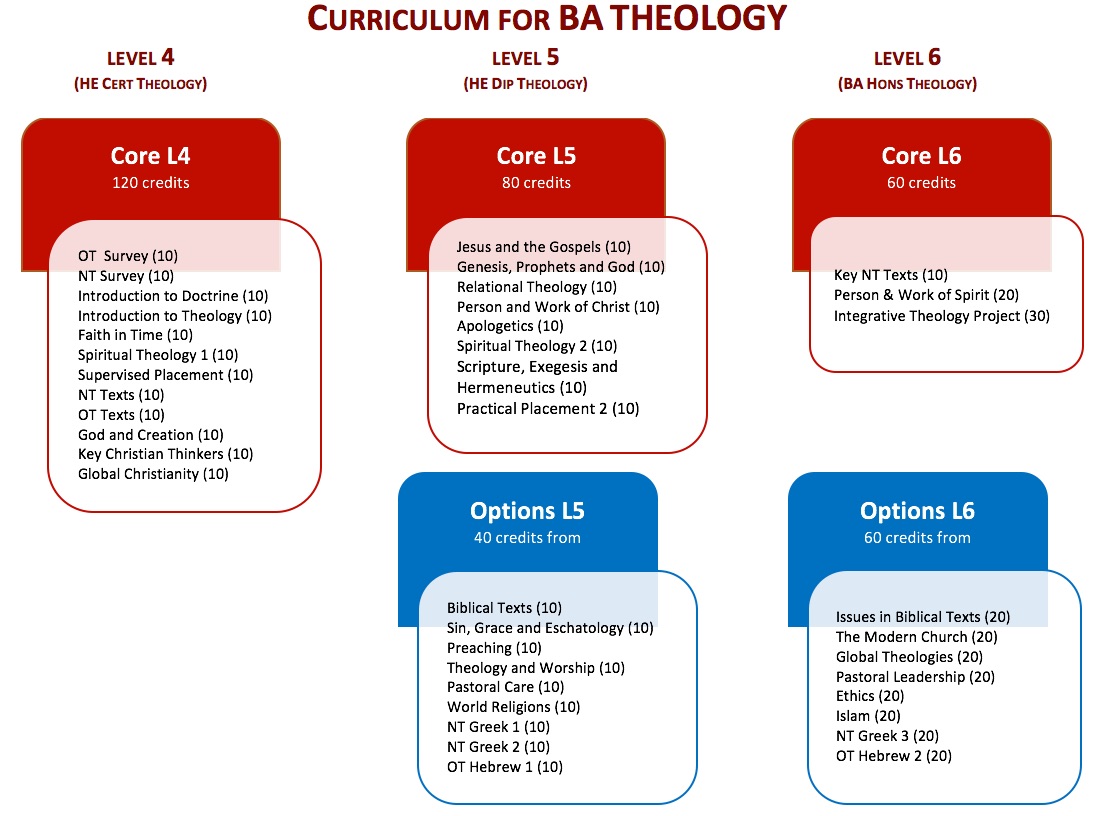Introduction to BA Theology
All students on the BA Theology programme (plus HE Cert. and HE Dip.) study the same curriculum, whether they are studying on-campus, online or a combination of both ('blended').
Below is the programme diagram for the HE Cert, HE Dip, BA Theology programme. If you study one of our undergraduate specialism degrees in theology and music, worship or counselling there will clearly be other specialism modules and fewer theology modules, but this diagram is sufficient for this general introduction.
Our undergraduate programmes have three levels of study - Levels 4, 5 and 6 - corresponding to three years of a full-time BA programme. Each level consists of 120 credits (130 for the music programmes). There are also three possible exit points from the programme, including a Certificate of Higher Education (CertHE) after 120 credits/Level 4, a Diploma of Higher Education (DipHE) after 240 credits/Level 5 or a BA Hons after 360 credits/Level 6.

At Level 4, you will take all the modules in the red box in the diagram. If you are full-time you will take all of these (120 credits) in one year, if part-time these would be taken over two years (60 credits per year). All the modules at Level 4 are compulsory (core modules) and there are no options. The order of the modules is indicative, but there clearly are some modules you need to take before others.
At Level 5 you will take all the modules in the red box, and a selection of options in the blue box. Again, if you are full-time you will take them all in one year, if you are part-time you would normally take these over two years. At Level 6 it is similar, you will take all the modules in the red box, and a selection of options in the blue box, over one or two years.
Therefore, if you are a full-time student you can plan to graduate in 3 years. If you are a part-time student you will normally complete in 6 years.
There is no room here to delve into the content of the modules, but in general you can find three broad categories in the theology curriculum: biblical studies, theological studies and practical theology.
At LST we are committed to integrative theological education, which means modules are not set in rigid sub-disciplinary areas but are in dialogue with each other in reference to the Bible, experience, tradition, reason, and community. It also means that we endeavour to characterise each module with elements of academic knowledge and understanding, spiritual formation and ministerial training.
Read more...
